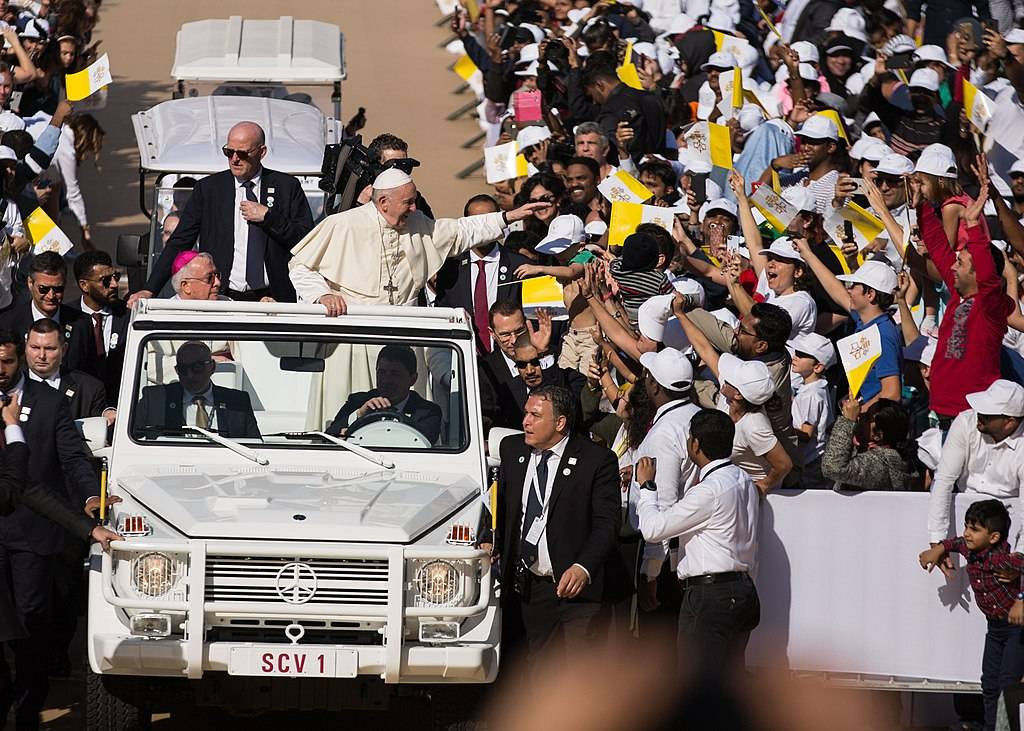How the Pope’s influence is changing Africa’s political landscape

Pope Francis in Abu Dhabi, Zayed Sports City.
Anna Johnson - States have been competing for influence in Africa’s growing economy for decades. European, American, and Asian interests have all invested in Africa to gain influence, but states aren’t the only actors with power in the continent. This week, Pope Francis visited several African countries pushing for stable relations within and between the states. The Pope has been an actor in Africa before, having met with the two feuding leaders of South Sudan’s two competing parties in 2019 to ask them to “stay in peace.” During this visit, he met with leaders from the Democratic Republic of Congo and South Sudan - both in various states of political, economic, and environmental turbulence.
As the head of the Catholic church, Pope Francis is a very powerful non-state actor. Of the approximately 1.3 billion Catholics worldwide, around 265 million live in Africa. The continent looks to be the future of the Catholic church as, though membership is declining in the United States and Europe, membership is steadily rising throughout Africa. Pope Francis himself is seen as a more liberal pope, particularly when in comparison to his predecessor Pope Benedict XVI. In his speeches in both the Democratic Republic of Congo and South Sudan, Pope Francis called for a rejection of tribalism and an end to corruption. During his speech to a stadium of supporters in the Democratic Republic of Congo, he led the crowd in a chant of “No to corruption.” He has previously been involved in peace negotiations between the feuding factions of South Sudan’s democratic government. His message of peace was so salient with the people and with local leaders, the President of South Sudan lifted a suspension on peace talks between his government and the Non-Signatories South Sudan Opposition Group. This level of influence in South Sudan and the Democratic Republic of Congo makes the Pope a major player in the future of these countries and Africa itself.
The actions of a non-state actor are determined by their own geopolitical code - a calculation of how they will interact with the rest of the world. As a geopolitical entity, the Pope and by extension, the Catholic Church, have created their own code based on an evaluation of their best interests. These include spreading catholicism, promoting peace, and ensuring the legitimacy of the papacy. As part of this code, the Pope has chosen to prioritize stability within Africa, relying on its potential for global relevancy with increasingly high levels of foreign investment from the United States, China, the United Kingdom and France.
Image credit: Anthony Sajdler, CC BY-SA 4.0, via Wikimedia Commons

